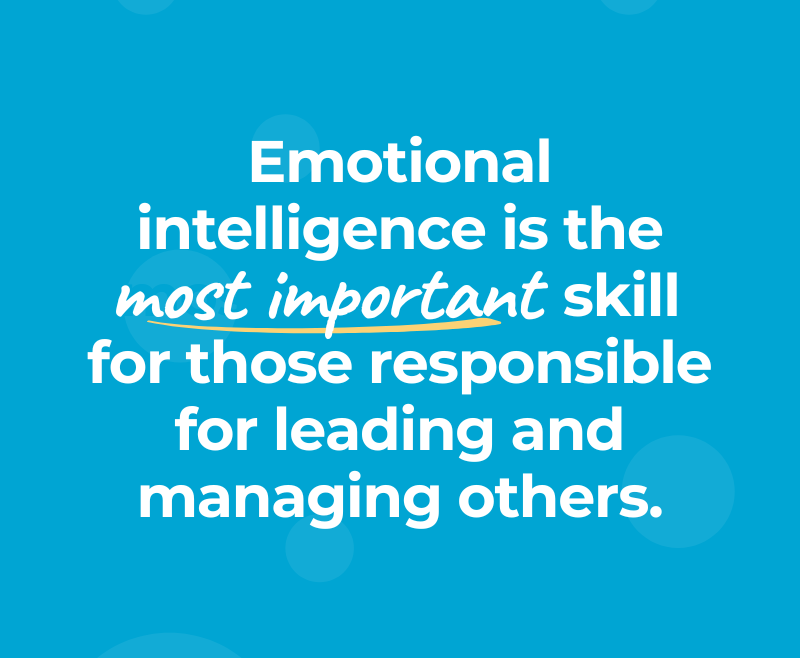For those new to managing others, it can all feel a bit of a whirlwind – particularly in the early days. The jump from doing the work to leading people doing the work is big. Often, the focus stays on tasks, deadlines, and delivery, while the people part, which is essential for effective management, gets left behind.
It’s crucial early in the role to explain what those people skills are, and offer specific training on how to develop them. It’s one of the reasons I created the Everyday Manager training programme.
At the heart of people skills is emotional intelligence.
Developing this essential skill will stand anyone in a leadership role in good stead – and not just in their professional relationships but in their personal ones too.
So what exactly is emotional intelligence?
In a nutshell, it’s the ability to manage our own emotions and recognise and understand the emotions of those around us. Forbes’ research in 2024 identified emotional intelligence as the most important skill for those responsible for leading and managing others.
In reality, I’ve found that most new managers already have a good level of emotional intelligence but they don’t realise it yet or recognise its importance. So, where do we start when we want to raise emotional intelligence awareness and what steps can you take to develop it?
Here are four simple steps:
1. Self-Awareness
Self-awareness lies at the heart of emotional intelligence. Managers with high self-awareness are able to recognise emotional triggers in themselves and in others. They understand their strengths and what they’re good at — and they also own their weaknesses.
Simply noticing your emotional reactions and keeping a journal to track your emotional patterns can have impact.
2. Emotional Regulation
An emotionally intelligent manager knows how to regulate their reactions, especially in high-pressure or challenging situations.
That means if team members get frustrated or stressed, you’re able to manage your own response and remain calm, objective, and supportive. This will help create a psychologically safe working environment, which is essential for people to do their best work.
Start by noticing what frustrates you. How do you typically react? Practice a short pause. Take a breath and count to three before responding. This is a great way to start moving from reacting to responding.
3. Empathy
Empathy is a learnable, practicable skill. Managers who can stand in another person’s shoes and understand different perspectives help create teams where people feel heard and valued.
Validating your own emotions and those of others can have a powerful impact on your team.
4. Communication Skills
There’s more to communication than talking and listening.
Emotionally intelligent managers are able to understand emotional cues like tone of voice, body language, choice of words and use that understanding to respond appropriately.
Active listening is one of the most powerful tools any manager or leader can develop.
Listening deeply to your people not only helps them feel heard and understood it is the key ingredient when it comes to building trust.
If you’re a new or early-career manager (or know someone who is), The Everyday Manager might be just the programme for you. You can read more about it here, or get in touch for a chat.




